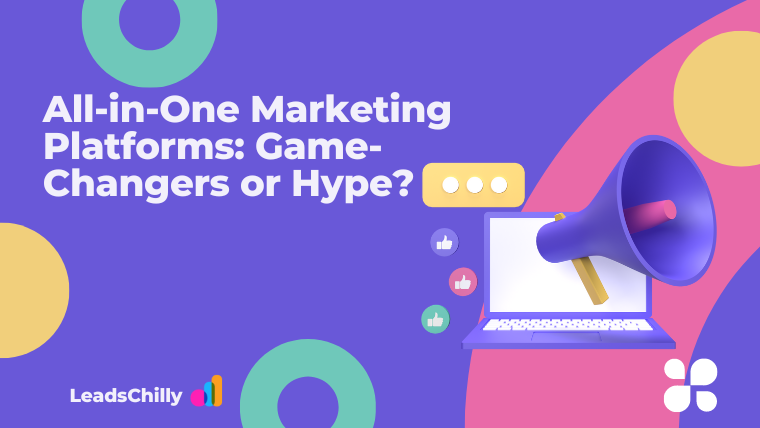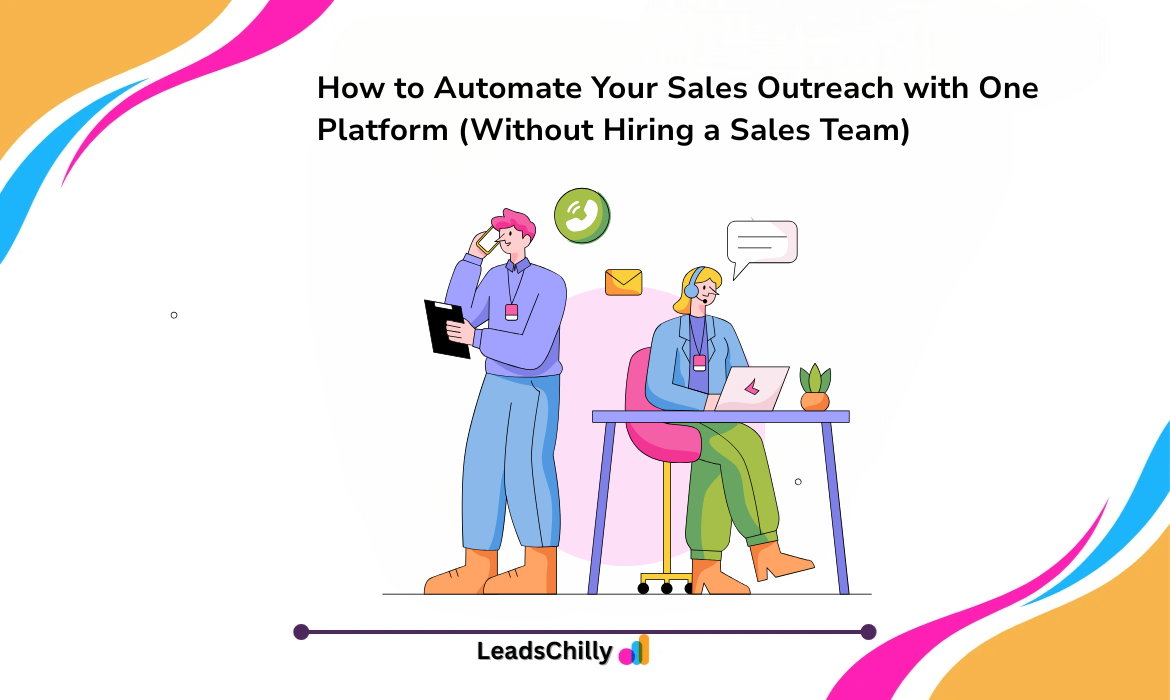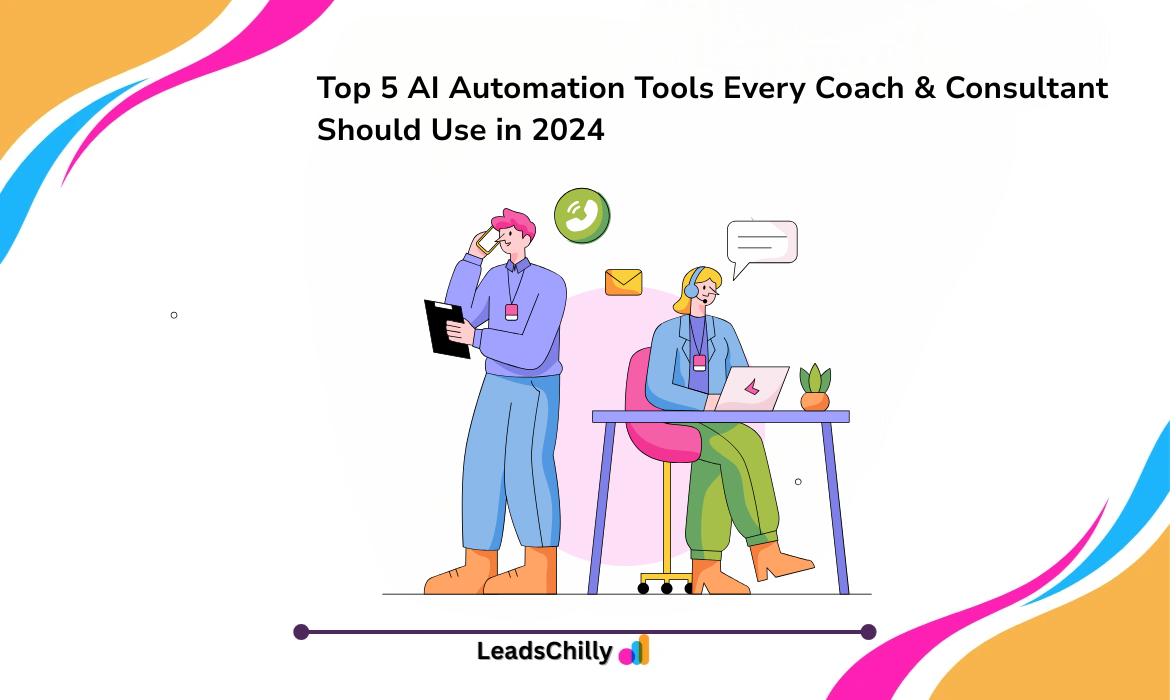In the fast-paced world of digital marketing, all-in-one marketing platforms have become a crucial tool for businesses aiming to streamline their marketing operations. These platforms integrate various marketing functions such as email marketing, social media management, CRM, and analytics into one cohesive system, offering convenience and efficiency. In 2024, the global marketing automation industry revenue is projected to rise by an estimated 12.6 percent, reaching over $8 billion. The marketing automation software market alone is anticipated to account for a significant portion of this growth, generating more than $5.9 billion in revenue in 2024 (Statista).
But the question remains: are these platforms truly game-changers that can transform your marketing efforts, or is their popularity more about hype than substance? In this blog, we’ll explore the pros and cons of all-in-one marketing platforms, and assess whether they are worth the investment for your business in 2024.
Understanding All-in-One Marketing Platforms
What Are All-in-One Marketing Platforms?
All-in-one marketing platforms are software solutions designed to integrate various marketing tools and processes into a single unified interface. Instead of using separate tools for email campaigns, social media scheduling, content marketing, lead generation, and data analytics, businesses can leverage these platforms to manage all of these functions under one roof.
For instance, platforms like HubSpot, ActiveCampaign, and Marketo offer an array of tools that allow businesses to track customer interactions, manage leads, automate campaigns, and analyze data – all in one place. The goal is to streamline operations, improve efficiency, and ultimately boost ROI (Return on Investment).
With the rise of marketing automation and AI-driven tools, these platforms have become even more powerful, allowing businesses to set up complex automated workflows that nurture leads, convert prospects, and retain customers with minimal manual intervention.
The Advantages of All-in-One Marketing Platforms
Several vital benefits make all-in-one marketing platforms highly attractive, especially as businesses head into 2024:
- Efficiency and Time Savings: The most significant advantage of these platforms is the ability to manage all aspects of your marketing strategy from one place. This eliminates the need to switch between different software tools, saving valuable time and reducing the risk of errors.
- Cost-Effective: Instead of paying for multiple tools separately, businesses can often save money by opting for an all-in-one solution. Most platforms offer tiered pricing based on features and usage, which can be adjusted as your business grows.
- Better Data Integration: By consolidating all your marketing activities in one platform, you can have a complete view of your customer data. This integrated approach allows for better data analysis, more accurate reporting, and improved decision-making.
- Automated Workflows: Many all-in-one platforms provide powerful automation capabilities that can help you automate repetitive tasks, such as sending follow-up emails, posting on social media, or updating customer information. Automation can significantly improve efficiency and allow your team to focus on more strategic tasks.
- Scalability: As your business grows, these platforms are designed to scale with you. They often include additional features that can be unlocked as needed, ensuring that your marketing efforts continue to align with your evolving business goals.
The Downsides: Is It Really All That?
While the advantages are clear, all-in-one marketing platforms aren’t without their limitations. Here are some of the potential downsides that businesses should consider:
- Jack of All Trades, Master of None: One of the most common criticisms of all-in-one platforms is that while they offer a broad range of tools, they may not excel in any one area. For example, their email marketing capabilities might be robust. Still, their social media tools might lack the depth and flexibility of a standalone social media management tool like Hootsuite or Buffer.
- Complexity and Learning Curve: The sheer number of features packed into these platforms can be overwhelming for some users. New users might find the platform difficult to navigate, and the learning curve could be steep. This complexity can sometimes negate the efficiency gains that the platform promises.
- Limited Customization: Some platforms offer limited customization options, which can be a disadvantage for businesses with particular needs. For example, you may not be able to fully tailor automation workflows to your unique processes, which could lead to frustration or inefficiency.
- Overdependence: Relying on a single platform for all your marketing needs can be risky. If the platform experiences downtime or technical issues, your entire marketing operation could be affected. Moreover, switching platforms later on can be a challenging process, particularly if your data is deeply integrated into the system.
Are All-in-One Marketing Platforms Truly Game-Changers?
The marketing landscape in 2024 is expected to become even more competitive as businesses embrace new technologies like AI, machine learning, and advanced data analytics. In this context, all-in-one marketing platforms can provide a competitive edge by enabling companies to stay agile and efficient.
However, the key to making these platforms a game-changer lies in how effectively they are implemented and used. Simply adopting an all-in-one platform won’t guarantee success; businesses must ensure they are using the platform’s features to their fullest potential. Proper training, continuous optimization, and strategic use of the platform’s tools are crucial for achieving the desired results.
How to Maximize the Benefits of All-in-One Platforms
To ensure that an all-in-one marketing platform delivers on its promises, businesses should take the following steps:
- Invest in Training: Make sure your team is fully trained on how to use the platform effectively. This includes understanding the various tools, features, and automation capabilities.
- Align the Platform with Business Goals: The platform should be used in a way that supports your overall marketing and business objectives. For instance, if your goal is to increase lead generation, focus on optimizing the platform’s lead nurturing and conversion tools.
- Regularly Review Performance: Regularly monitor and analyze your marketing efforts to see how well the platform is performing. Look at data such as open rates, click-through rates, and conversion rates to assess whether your campaigns are achieving their goals.
- Leverage Automation: Use the platform’s automation tools to their fullest potential. Set up automated workflows that handle repetitive tasks, such as sending welcome emails to new subscribers or following up with leads after they download a resource from your website.
- Stay Updated: Keep up with any new updates, features, or best practices that the platform introduces. These platforms are constantly evolving, and staying on top of changes can give your business an advantage.
Popular All-in-One Marketing Platforms in 2024
Several all-in-one marketing platforms have become popular choices for businesses. Each of these platforms offers a wide range of features and caters to different business sizes and needs. Here are some of the top platforms to consider:
HubSpot
HubSpot remains one of the most popular all-in-one marketing platforms, particularly for small to medium-sized businesses. HubSpot’s strength lies in its comprehensive suite of tools, including CRM, email marketing, social media management, and automation features. HubSpot is known for being user-friendly, but it can be on the pricier side as your business grows.
ActiveCampaign
ActiveCampaign is another top choice for businesses looking for a powerful automation tool. It excels in email marketing, automation, and customer relationship management. ActiveCampaign is highly customizable, allowing users to create complex workflows tailored to their needs.
Marketo
Marketo is designed for larger enterprises and is known for its advanced features in marketing automation, lead management, and account-based marketing (ABM). It provides robust analytics and reporting, making it ideal for businesses with more complex marketing needs.
Zoho CRM
Zoho CRM offers a more budget-friendly solution while still providing a wide range of marketing and sales tools. Zoho is an excellent option for small businesses and startups looking for a cost-effective all-in-one platform with CRM integration.
Conclusion: Game-Changer or Hype?
So, are all-in-one marketing platforms really game-changers in 2024? The answer largely depends on how your business plans to use them. These platforms can significantly streamline your marketing efforts, reduce costs, and provide valuable data insights. However, they aren’t a magic bullet and may not offer the depth of functionality that specialized tools provide.
If you’re ready to take your business to the next level and want a customized marketing solution that fits your specific needs, consider exploring the powerful tools available through LeadsChilly. Whether you need help with lead generation, marketing automation, or data analysis, LeadsChilly can provide the right solution to optimize your marketing strategy. Get started today and see how LeadsChilly can transform your business!
FAQ
Q: Are all-in-one marketing platforms suitable for small businesses?
A: Yes, many all-in-one marketing platforms offer scalable solutions tailored to fit the budgets and needs of small businesses. Platforms like HubSpot and Zoho CRM are particularly well-suited for small to medium-sized companies.
Q: Can I integrate an all-in-one marketing platform with existing tools?
A: Most platforms provide integrations with other popular tools, such as Google Analytics, Salesforce, and WordPress. It’s essential to check the compatibility before choosing a platform to ensure it will work with your existing systems.
Q: Do all-in-one marketing platforms offer customer support?
A: Yes, most platforms offer customer support, but the level of support varies. Some offer 24/7 chat support, while others may provide phone and email support based on your subscription level.
Q: Can these platforms improve lead conversion rates?
A: Yes, by using automation and targeted campaigns, all-in-one marketing platforms can help nurture leads and improve conversion rates. However, the success depends on how well the platform is implemented and used.




Comments are closed.